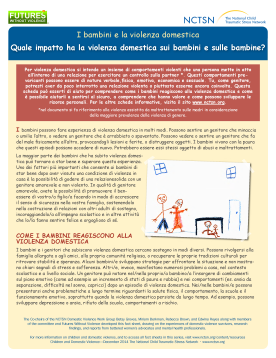
Quale impatto ha la violenza domestica sui bambini e sulle bambine?
Provides parents with information on how to talk to children about domestic violence. This fact sheet discusses how domestic violence can affect children. Translated in 2024.
Parents and caregivers play an essential role in helping children and teenagers recover from traumatic events. These resources are for parents, adoptive parents, resource/foster parents, grandparents, caregivers, and all others who care for children and teens. The more caregivers learn about how traumatic events affect their children (whether toddler, school-age, teen, youth, or adult), the more they understand the reasons for their children’s behaviors and emotions, and the better prepared they are to help them cope. When children know that caring adults are working to keep them safe and support them in understanding their reactions to trauma, most can recover and go on to live healthy and productive lives.

Provides parents with information on how to talk to children about domestic violence. This fact sheet discusses how domestic violence can affect children. Translated in 2024.

Offers information regarding child sex trafficking to juvenille justice professionals.
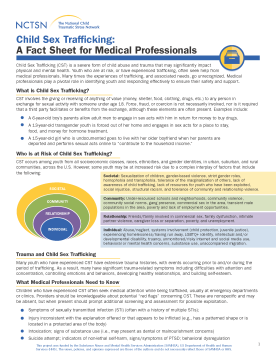
Offers information regarding child sex trafficking to medical professionals.
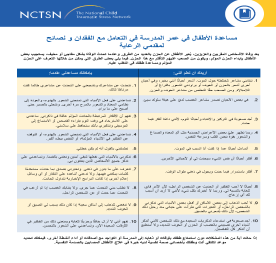
Describes how school-age children may feel when struggling with the death of someone close and offers tips on what caregivers can do to help. Translated in 2023.
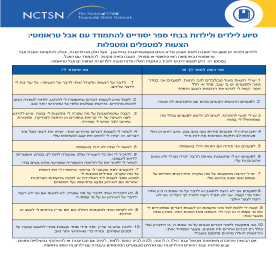
Describes how school-age children may feel when struggling with the death of someone close and offers tips on what caregivers can do to help. Translated in 2023.
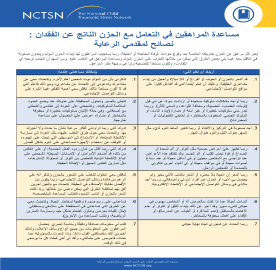
Describes how teens may feel when struggling with the death of someone close and offers tips on what caregivers can do to help. Translated in 2023.
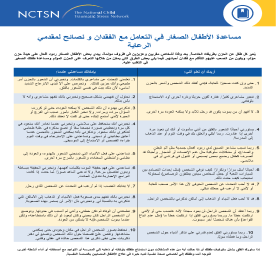
Outlines the feelings of young children struggling with the death of someone meaningful and offers suggestions on what caregivers can do to help. Translated in 2023.
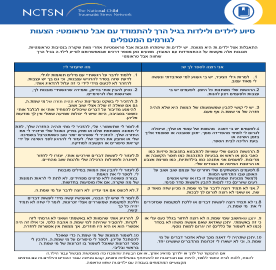
Outlines the feelings of young children struggling with the death of someone meaningful and offers suggestions on what caregivers can do to help. Translated in 2023.
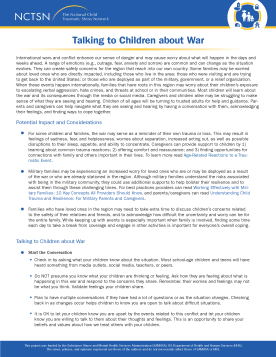
Offers information for caregivers on how to talk to children about war. This fact sheet includes the potential impact and considerations when talking to children about war, how to start the conversation, understanding media coverage, and how to foster resilience. Updated 2023.
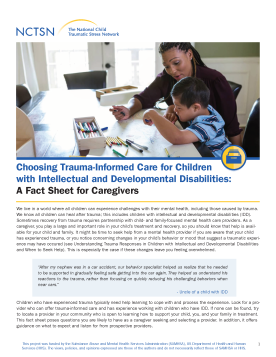
Provides information for caregivers on choosing trauma-informed care for children with IDD.
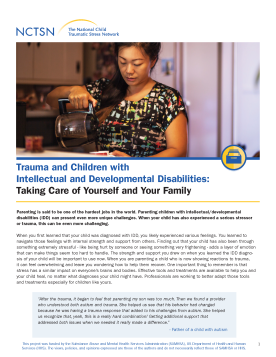
Offers guidance on the importance of taking care of oneself while parenting children with IDD.
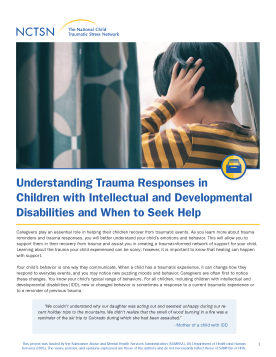
Outlines what responses to trauma could look like in children with IDD.